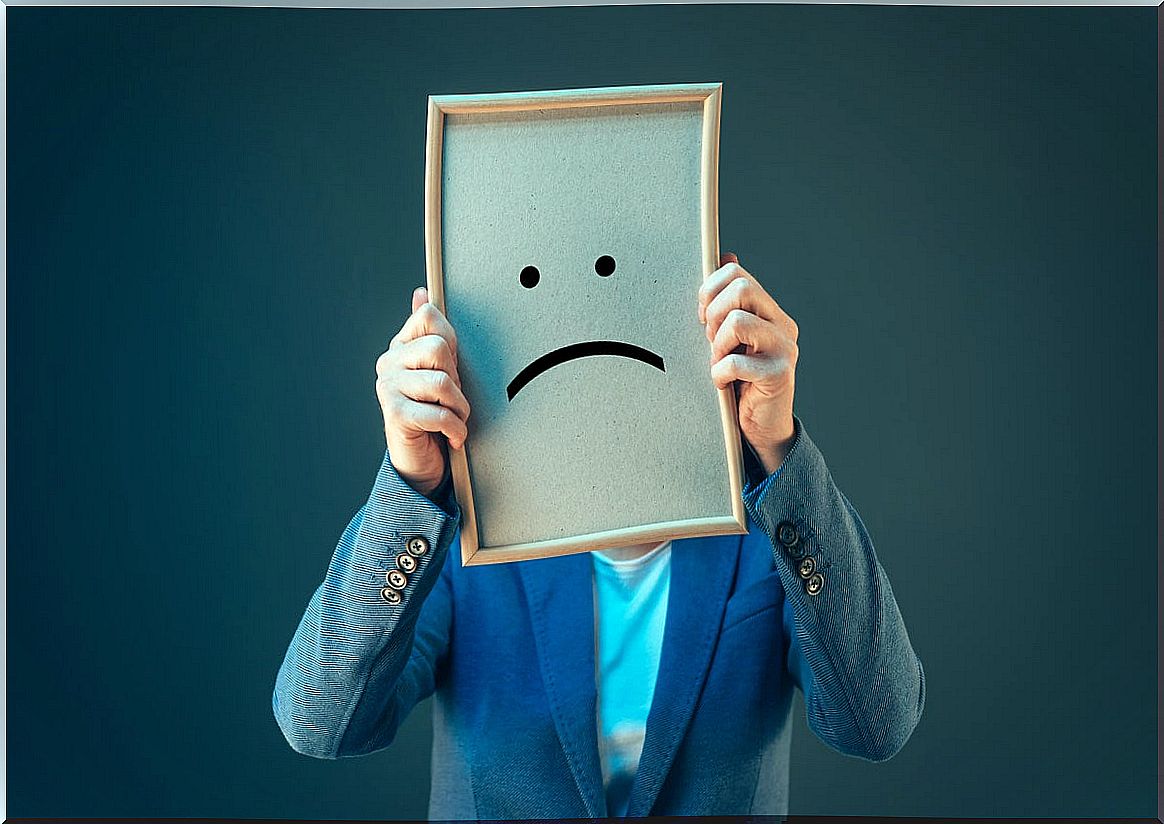What Is Defensive Pessimism?

Are you pessimistic or optimistic? What kind of optimism or pessimism do you practice? In this article we will talk about defensive pessimism, a mechanism that makes us put ourselves in the worst, containing our expectations to reduce the chances of suffering.
Is defensive pessimism really effective? How is it related to self-esteem? Are people with high self-esteem more self-confident and therefore tend to adopt a more optimistic style? As for many questions, there is no single and true answer, and different authors have given very different answers. Don’t miss their answers!
Defensive pessimism: what is it?
Defensive pessimism is a concept of psychology that refers to the action of protecting ourselves in a certain situation, previously putting ourselves in the worst case scenario. Thus, if something goes wrong, we feel how we have “protected” ourselves from its negative consequences, although the reality is that we live them the same (badly).
People who adopt defensive pessimism put themselves at their worst (anticipate it) to avoid disappointment or disappointment should they fail ; It is effective for them to think that things will not go well (they do not place hope on the good), because that leads them to invest less energy.
In addition, they feel more prepared to face difficulties or problems (but they also feel less excited). On the other hand, optimistic people always expect the best and therefore it is easier for reality to fall short of their expectations.
But is defensive pessimism really useful or does it make us live by half? Does it really protect us? About what? We are going to explain these questions throughout the article.

Relationship with self-esteem
How is defensive pessimism connected to self-esteem? What is the relationship between the two concepts? In the first place, we are going to say that, broadly speaking, self-esteem is that consideration (or appreciation) that we have for ourselves (do I feel satisfied with myself?). It has to do with how we treat ourselves, what we say to ourselves, how we take care of ourselves, etc. In turn, self-esteem is linked to self-concept, which would be the global evaluation of oneself (how do I describe myself?).
Some experts, such as the psychologist Natalia García, believe that defensive pessimism is a mechanism that people with low self-esteem tend to carry out to a greater extent . However, the reality is that all of us, regardless of our greater or lesser self-esteem, have at some time made use of defensive pessimism.
Low self-esteem?
What happens when people with low self-esteem use defensive pessimism? These people may leave situations that they believe will lead to failure, in order to “protect” their self-concept (or self-esteem). Thus, fearing that something bad will happen, they prevent anything from happening.
An example of someone with low self-esteem who uses defensive pessimism would be a person who does not go to class, does not take exams or assignments, etc., for fear of failing. Thus, his greatest motivation would be not to fail, and that is why when that possibility exists, he directly avoids the situation.
These people often make excuses for themselves to justify their actions and failures. They do not ask themselves the following: Is it not the failure not to have tried?
What does defensive pessimism protect us from?
What does defensive pessimism really protect us from? Those who use this mechanism, as well as its defenders, will argue that it protects from having a bad time, from possible failures and above all, from disappointment.
It is as if we play a soccer game and never shoot for the goal; We would never “fail”, but neither would we score any goals. This metaphor speaks precisely of this, that life is full of situations that require taking action. If we do nothing, we may have the feeling that we suffer less, but at the same time we miss the opportunity to really enjoy ourselves.
So, in relation to the question: what does defensive pessimism protect us from? Perhaps a priori it seems that it protects us from disappointments, but the reality is that it is limiting us. In any case, using defensive pessimism when facing different life situations is just as legal as using optimism or other mechanisms; Each person must find their way of feeling and acting, the one that is in harmony with their values and with how they understand life.
Who says we only have to live one way? The important thing is not to stop learning and to be flexible to change, if the situation requires it or if we feel like it.

Defensive pessimism: can it be useful?
However, not all authors believe that defensive pessimism is a “bad” thing. Psychologists Julie Norem and Nancy Cantor (Wellesley College, Massachusetts, USA) defend this concept in their book The Positive Power of Negative Thinking . Other authors also address the concept, such as Fernando Rojas in his book La Fuerza del Optimismo. For their part, Norem and Cantor believe that defensive pessimism is something effective and useful when facing difficulties.
According to the authors, someone who adopts defensive pessimism is better prepared for failure, since in their thinking that failure was already almost certain (that is, “it already existed”). It may sound counterintuitive, but thinking negatively can help these people put less effort and energy into reaching a goal.









